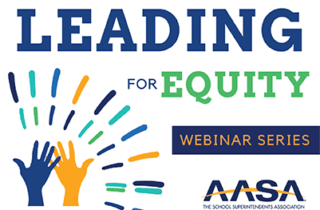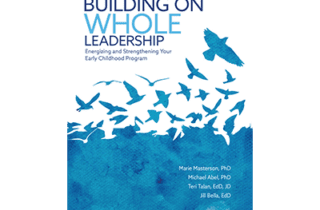While gaps in technology access were highlighted during the pandemic, many school and district leaders are trying to make strides with an even older issue: educational equity for children of all races and economic backgrounds. In the edWebinar, “Leading for Equity: Pursuing an Equity Agenda,” hosted by AASA, The Superintendents Association and AASA’s Leadership Network, Dr. Frank Barnes, Chief Equity and Accountability Officer, Charlotte-Mecklenburg Schools (CMS), and Kimberly Vaught, Principal, Allenbrook Elementary School, discussed their approach to building equity.
Achieving educational equity doesn’t just happen when schools change their expectations and goals in the classroom. Support and understanding from all stakeholders, including families, local businesses, elected officials, etc., is essential to ensuring everyone in the community is working towards the same goal. During the edWebinar, “Leading for Equity: From Research to Practice – Accelerating Outcomes for Scholars of Color, Part II,” hosted by AASA, The Superintendents Association and AASA’s Leadership Network, the presenters continued their exploration of strategies discussed in Part I and how leaders in the Selma City Public Schools are mobilizing their community in pursuit of educational equity.
Achieving educational equity is a moral and fiscal imperative, according to Dr. Bren Elliott, Chief School Improvement and Supports Officer for District of Columbia Public Schools. Moral because all students deserve access to the same high-quality education and opportunities, and fiscal because research shows the negative economic impact when students are left behind. In the edWebinar, “Leading for Equity: From Research to Practice – Accelerating Outcomes for Scholars of Color, Part I,” hosted by AASA, The Superintendents Association and AASA’s Leadership Network, the leaders from Selma City Public Schools in Alabama shared the first part of their plan and how it ties into Dr. Elliott’s research on successful strategies for achieving educational equity.
Join this edWebinar to recognize the importance of hiring and retaining the right person to maintain stability for the program, families, and children.
The goal of this edWebinar is to help educators start the work of equitable practices through more access, choice, and time—encouraging all students to be seen and heard while having multiple opportunities for biased free learning.
The goal of this edWebinar is to infuse your work with balance and energy as you clarify essential goals and make the most of your resources.
In this edWebinar, presenters focus on the following areas: leadership competencies, diversity, culture, innovation and leading digital transformations.
In this edWebinar, Julie Thannum, APR and Assistant Superintendent for Board and Community Relations at Carroll ISD in Southlake Texas, will cover practical tips for implementing a strategic, two-way communications program to not only inform, but actively engage your stakeholders in topics important to their public schools.
In this edWebinar, attendees will learn from a past teacher, superintendent, state schools chief, and former director of education, College Ready, at the Bill & Melinda Gates Foundation.
In this webinar, Dr. Brad Gustafson will host a virtual book talk on his book, Renegade Leadership. The first years in the principalship can be some of the most exciting and difficult years in education. It’s imperative that new school leaders focus on what really matters during these foundational leadership years.









